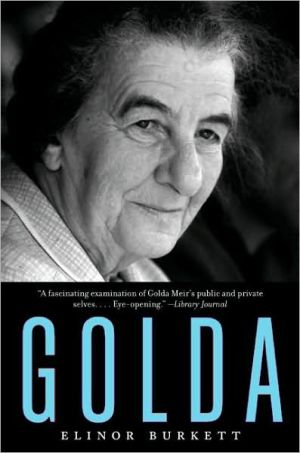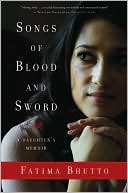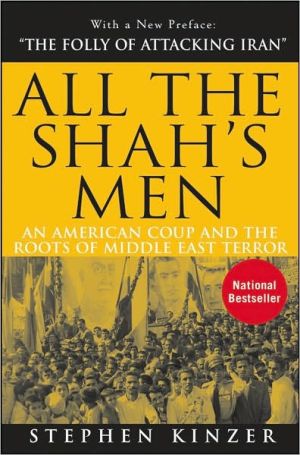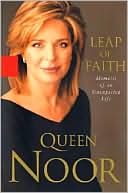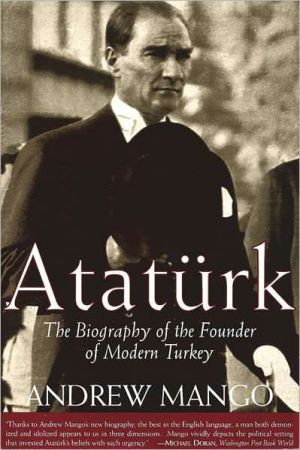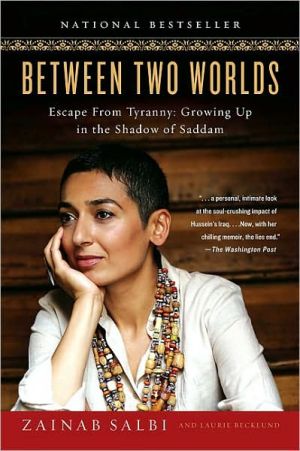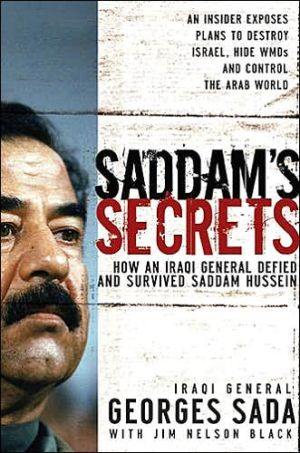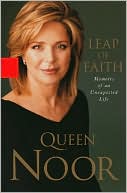Golda
Golda Meir was the first female head of state in the Western world and one of the most influential women in modern history. A blend of Emma Goldman and Martin Luther King Jr. in the guise of a cookie-serving grandmother, her uncompromising devotion to shaping and defending a Jewish homeland against dogged enemies and skittish allies stunned political contemporaries and transformed Middle Eastern politics for decades to follow. She outmaneuvered Richard Nixon and Henry Kissinger at their own...
Search in google:
Golda Meir was the first female head of state in the Western world and one of the most influential women in modern history. A blend of Emma Goldman and Martin Luther King Jr. in the guise of a cookie-serving grandmother, her uncompromising devotion to shaping and defending a Jewish homeland against dogged enemies and skittish allies stunned political contemporaries and transformed Middle Eastern politics for decades to follow. She outmaneuvered Richard Nixon and Henry Kissinger at their own game of Realpolitik, and led Israel through a bloody war even as she eloquently pleaded for peace, carrying her nation through its most perilous hours while she herself battled cancer. In this masterful biography, critically acclaimed author Elinor Burkett paints a vivid portrait of a legendary woman defined by contradictions: an iron resolve coupled with magnetic charm, a kindly demeanor that disguised a stunning hard-heartedness, and a complete dedication to her country that often overwhelmed her personal relationships. Publishers Weekly As Israel's prime minister from 1969 to 1974, Golda Meir (1898-1978) was recognized by her wrinkled face and gray bun. But, Burkett (Another Planet: A Year in the Life of a Suburban High School) says in this sympathetic but balanced biography, the young Meir was so strikingly attractive that detractors grumbled she had slept her way up the political hierarchy. The rise of the Russian-born, Milwaukee-bred Golda Mabovitz, however, was due to her enormous popularity in the U.S. as a fund-raiser for a struggling Jewish settlement in pre-statehood Palestine. Meir was politicized by memories of poverty and anti-Semitism in czarist Russia and by a feisty, older sister who introduced her to socialist Zionism. A Zionist pioneer, Meir secretly negotiated with Jordan's King Abdullah before the U.N. vote to partition Palestine; became a fervent supporter of Soviet Jewry after her reluctant stint as Israel's first ambassador to Moscow; and hesitantly approved the assassination of Palestinian terrorists responsible for the massacre of Israeli athletes at the Munich Olympics. Burkett says the price of Meir's nonstop political life was rocky relationships with her children and estranged husband. This is a solidly researched, highly readable portrait of a mesmerizing but, according to Burkett, ultimately lonely woman, though much of the material is familiar. 8 pages of b&w photos. (May)Copyright © Reed Business Information, a division of Reed Elsevier Inc. All rights reserved.
Golda\ Chapter One\ \ Pessimism is a luxury that a Jew can never allow himself.\ \ By the time the bells of Kishinev's churches tolled noon on Easter Sunday, April 19, 1903, the 50,000 Jews of the Bessarabian capital had been huddled in terror for more than six hours. For them, it was the ninth day of Nisan, 5663, the seventh day of Passover, and they should have been celebrating the exquisite memory of freedom and deliverance from Pharaonic enslavement. The year before, they'd barely escaped the threats and bloodlust set off by the ancient calumny that Jews use the blood of young Christians in the ritual preparation of matzo. But this year, they feared they might not be so lucky.\ In early February, the battered body of a Gentile boy had been discovered in a Kishinev neighborhood, and then a Christian girl committed suicide in the Jewish hospital. Suddenly, the city was awash in sinister rumors about Jewish plots. Bessarabetz, the city's only newspaper, stoked the fire with tales of Jews exploiting the toils of hapless Christians, of Jewish plots to undermine the power of the tsar, and of the international Jewish conspiracy to seize and rule the whole world.\ Finally, in late March, an anonymous handbill circulated in the city's taverns and tea-houses. "Brothers, in the name of our Savoir, who shed his blood for us; in the name of our Father the Czar, who cares for his people and grants them alleviating manifests, let us exclaim in the forthcoming great day: Down with Zjids! Beat these mean degenerates, blood suckers drunk with Russian blood!"\ The leaders of the panic-stricken communityhadpleaded with Governor Von Raben to arrange police protection, to no avail. So on Noch Velikoi Soobboty, the Night of the Great Saturday in the Russian Orthodox calendar, Christians chalked prominent crosses on their homes and stores, and the Jews of Kishinev boarded up their houses, nailed their shutters closed, and hunkered down for the inevitable.\ It was a strange phenomenon, the majority petrified of the minority. But in that odd corner of Eastern Europe called the Pale of Settlement, Christians had been tormenting Jews ever since Catherine the Great set her mind on protecting the masses from "evil influences" by banishing Russia's Jews to the farthest and least economically significant reaches of her empire, to pieces of Russian Poland and the Ukraine, to Lithuania, Belorussia, the Crimea, and Bessarabia, until 94 percent of Russia's Jews were confined to the Pale.\ There, the Jews coped by insulating themselves in their own world. Signs in Yiddish advertised Jewish-owned groceries and factories, barbers expertly twisted Hasidic side curls, and tinsmiths refurbished dented tea samovars and cooking pots for a population so poor that most Jewish communities were nothing more than warrens of hovels leaning together in dank courtyards.\ They lived girded against outbreaks of anti-Jewish violence that felt like natural phenomena, as unpredictable and unavoidable as the eruption of sleeping volcanoes. For more than two decades, the fury had ignited almost regularly—in 30 Ukrainian towns in 1881, on Christmas day that same year in Warsaw, in a total of 166 towns and villages from one end of the Pale to the other. Then again, in 1882 and 1893.\ That EasterSunday in Kishinev, the violence began innocuously enough: just a knot of teenage boys heckling and shoving the few Jews who dared cross Chuflinskii Square. Then the adults came, men who'd been celebrating the resurrection of Jesus with vodka or tuica, the local plum brandy, and fixed on capping it off with the first pogrom of the twentieth century.\ By mid-afternoon, more than two dozen mini-gangs of two to three dozen men had fanned out along the winding alleys of the old Jewish quarter, smashing windows, kicking in doors, raiding small shops. Gradually, the crowd—the same sort of crowd that would soon turn on the tsar himself—was joined by a new and more lethal wave of rioters. Hearing a rumor that Tsar Nicolas II had given permission for a three-day orgy of Jew-beating, students and seminarians streamed out of the Royal School and area religious colleges wielding iron bars and axes.\ At 13 Asiasky Street, two families trembled inside a low-roofed out-house as the rampage swept into their courtyard. They thought they'd found safety. But the crowd found them, stabbing one man, a glazier, in his neck. When he still showed signs of life, they beat him to death with sticks and truncheons. Panicked, the others in the out-house made a rush for a small attic, but the crowd spotted and followed them. So they tore their way through the roof, seeking protection in the sunlight and the gaze of a policeman, a Russian priest and scores of neighbors below. Five minutes later, their battered bodies became part of the dross of the morning's bloody frenzy.\ In New Bazaar, 150 Jews organized in self-defense—but they were arrested. A grocer, blind in one eye,offered his attackers all his money, the not-so-princely sum of 50 rubles, for his life and livelihood. They took the cash, then destroyed his shop and gouged out his other eye with a sharpened stick, yelling, "You will never again look upon a Christian child."\ Joseph Shainovitch's head was bashed in by a gang of drunks who then diverted themselves by driving nails through his mother-in-law's eyes. A two-year-old boy's tongue was cut out while he was still alive. Bodies were hacked in half or gutted and stuffed with chicken feathers as the city's bourgeoisie sauntered the streets in calm indifference.\ For two days, the murderers, looters, and rapists ran free in the streets. When the frenzy finally died down, pages of scripture floated in the wind, and everywhere blood mixed with brick and glass, mortar and mud. The toll was 49 dead, 587 injured. More than seven hundred houses and 588 shops were destroyed. Two thousand families were left homeless.\ Golda. Copyright ? by Elinor Burkett. Reprinted by permission of HarperCollins Publishers, Inc. All rights reserved. Available now wherever books are sold.
\ Publishers WeeklyAs Israel's prime minister from 1969 to 1974, Golda Meir (1898-1978) was recognized by her wrinkled face and gray bun. But, Burkett (Another Planet: A Year in the Life of a Suburban High School) says in this sympathetic but balanced biography, the young Meir was so strikingly attractive that detractors grumbled she had slept her way up the political hierarchy. The rise of the Russian-born, Milwaukee-bred Golda Mabovitz, however, was due to her enormous popularity in the U.S. as a fund-raiser for a struggling Jewish settlement in pre-statehood Palestine. Meir was politicized by memories of poverty and anti-Semitism in czarist Russia and by a feisty, older sister who introduced her to socialist Zionism. A Zionist pioneer, Meir secretly negotiated with Jordan's King Abdullah before the U.N. vote to partition Palestine; became a fervent supporter of Soviet Jewry after her reluctant stint as Israel's first ambassador to Moscow; and hesitantly approved the assassination of Palestinian terrorists responsible for the massacre of Israeli athletes at the Munich Olympics. Burkett says the price of Meir's nonstop political life was rocky relationships with her children and estranged husband. This is a solidly researched, highly readable portrait of a mesmerizing but, according to Burkett, ultimately lonely woman, though much of the material is familiar. 8 pages of b&w photos. (May)\ Copyright © Reed Business Information, a division of Reed Elsevier Inc. All rights reserved.\ \ \ \ \ School Library JournalTo coincide with the 60th anniversary of Israel's founding, journalist Burkett (So Many Enemies, So Little Time) offers a fascinating examination of Golda Meir's public and private selves and her devotion to the creation and defense of the Jewish state. She also assesses Golda's hard-nosed leadership style. Though most of Israel's heavyweights, including David Ben-Gurion, respected Meir, many felt that she was not the right choice to be Israel's prime minister. But she had a load of self-confidence, was a brilliant orator, and proved to be conscientious, determined, dependable, and more than capable. Burkett maintains that the complex and formidable Golda saw the world only in black and white, cajoling friends and foes into agreeing with what she thought was right for the welfare of Israel. For over 50 years, about 30 of them as prime minister, she nearly always prevailed. As Burkett shows, her personal life was another story. She cast her husband and two children into secondary positions, paying them little attention and causing her marriage to wither away. An eye-opening account of a legendary world leader that academic and public libraries will want to buy.\ —Lisa Nussbaum Copyright 2007 Reed Business Information\ \ \ \ Kirkus ReviewsSpirited biography of the Zionist activist and pioneering Israeli leader. To readers of a certain age, Golda-"the sassy nicotine-stained grandmother who wore baggy suits and orthopedic shoes, spoke with an accent in every language but Yiddish, and led one of the smallest countries in the world"-needs no surname. Yet, particularly in the post-Intifada Middle East, Golda Meir's contributions to Israeli history have come to be overshadowed. Journalist and longtime Middle East hand Burkett (So Many Enemies, So Little Time: An American Woman in All the Wrong Places, 2004, etc.) brings those contributions to the fore, even as the author considers that the ideals for which the Moldova-born, Milwaukee-educated Meir fought are not the ones that prevailed in Israel, "that despite her hectoring, her egalitarian utopia of idealist pioneers would turn into a dog-eat-dog capitalist society rife with consumerism and greed." Meir, of course, had other things to worry about. Having survived the surprisingly uncollegial world of state politics and even engineered a modest coup to supplant David Ben-Gurion (who famously called her the only man in his cabinet), Meir spent much of her tenure as Israeli's prime minister trying to avoid falling into various traps Henry Kissinger laid for her in the service of Nixonian realpolitik. Burkett is at her best in reconstructing these tense moments, explaining, quite reasonably, that "there was little that Golda feared more than a peace imposed by outside powers," having had plenty of experience with those outside powers during the years of war and protectorate. Meir had plenty of problems at home as well, navigating the rightist shoals of Moshe Dayan, Shimon Peres andcompany. Burkett capably explains all the political complexities while suggesting that the legendarily tough Meir would have gladly folded back Israel's post-Six-Day War borders had any of the Arab powers agreed to talk about it at the time-a process that is ongoing more than 40 years later. Enlightening but sobering, particularly when one wonders where Meir's utopian ideals went to. Agent: Lisa Bankoff/ICM\ \
